
Tyre Coast: Jewel of the Mediterranean
Tyre Coast in Lebanon is a stunning destination that combines ancient history with beautiful beaches. This coastal city, known locally as Sur, is one of the oldest continuously inhabited cities in the world, boasting a rich tapestry of Phoenician, Roman, and Byzantine heritage. Visitors can explore the ruins of ancient Tyre, including the UNESCO World Heritage Sites of Al-Bass and Al-Mina, where you will find impressive Roman hippodromes, majestic columns, and intricate mosaics. The coastline itself is a paradise for beach lovers. The golden sands and crystal-clear waters of Tyre's beaches are perfect for sunbathing, swimming, and snorkeling. The warm Mediterranean climate makes it an ideal year-round destination. The bustling Tyre Fishing Harbor offers a glimpse into the daily life of local fishermen, and fresh seafood can be enjoyed at one of the many waterfront restaurants. Beyond its historical and natural wonders, Tyre Coast is also a vibrant cultural hub. The city hosts various festivals and events throughout the year, showcasing traditional Lebanese music, dance, and cuisine. The friendly locals add to the charm, making visitors feel welcome and ensuring an unforgettable experience.
Local tips in Tyre Coast
- Wear comfortable shoes for exploring the archaeological sites.
- Visit the Tyre Fishing Harbor early in the morning to see the fishermen in action.
- Try the local seafood at the waterfront restaurants for a fresh and authentic dining experience.
- Pack sunscreen and a hat to protect yourself from the strong Mediterranean sun.
- Check out the local festivals and events for a taste of Lebanese culture.
Tyre Coast: Jewel of the Mediterranean
Tyre Coast in Lebanon is a stunning destination that combines ancient history with beautiful beaches. This coastal city, known locally as Sur, is one of the oldest continuously inhabited cities in the world, boasting a rich tapestry of Phoenician, Roman, and Byzantine heritage. Visitors can explore the ruins of ancient Tyre, including the UNESCO World Heritage Sites of Al-Bass and Al-Mina, where you will find impressive Roman hippodromes, majestic columns, and intricate mosaics. The coastline itself is a paradise for beach lovers. The golden sands and crystal-clear waters of Tyre's beaches are perfect for sunbathing, swimming, and snorkeling. The warm Mediterranean climate makes it an ideal year-round destination. The bustling Tyre Fishing Harbor offers a glimpse into the daily life of local fishermen, and fresh seafood can be enjoyed at one of the many waterfront restaurants. Beyond its historical and natural wonders, Tyre Coast is also a vibrant cultural hub. The city hosts various festivals and events throughout the year, showcasing traditional Lebanese music, dance, and cuisine. The friendly locals add to the charm, making visitors feel welcome and ensuring an unforgettable experience.
When is the best time to go to Tyre Coast?
Iconic landmarks you can’t miss
Ruins of Tyre - Necropolis
Discover the ancient wonders of Tyre Necropolis, a UNESCO World Heritage Site showcasing the rich heritage of the Phoenician civilization in Lebanon.
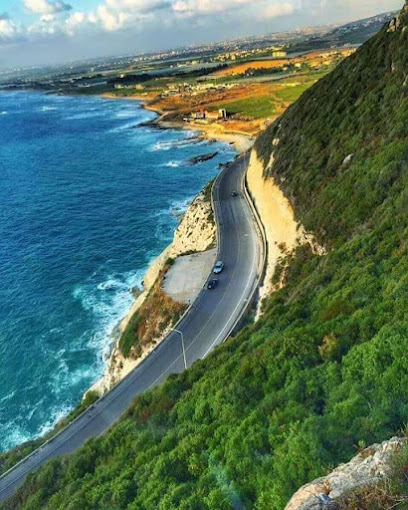
Tyre World Heritage Site
Discover the ancient wonders of Tyre, a UNESCO World Heritage Site rich in history, stunning Roman ruins, and vibrant Phoenician culture along the Mediterranean coast.
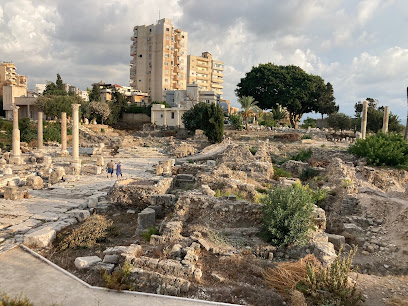
Tyre Hippodrome
Explore the Tyre Hippodrome, a captivating historical landmark in Lebanon that brings the grandeur of Roman chariot racing to life.
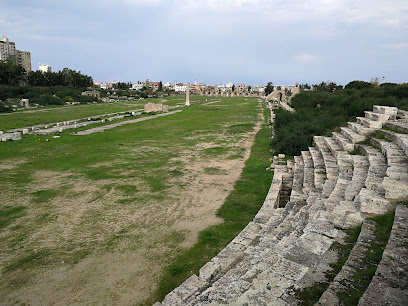
Tyre Coast Nature Reserve
Explore Tyre Coast Nature Reserve, a captivating blend of natural beauty and rich history along Lebanon's Mediterranean coastline.
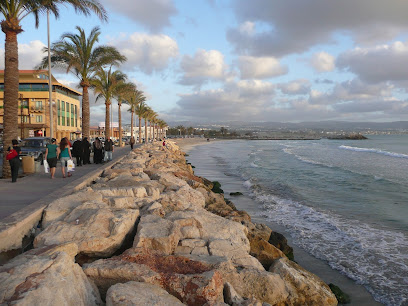
Ruins of Tyre : The Egyptian Port
Explore the ancient maritime wonders of Tyre, a historical landmark rich in Phoenician legacy and breathtaking coastal views.
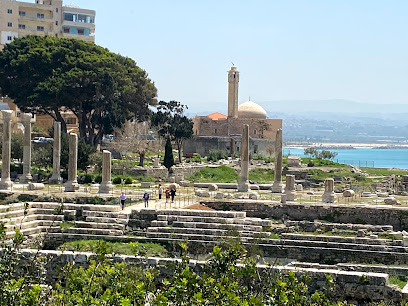
بحر صور
Discover the beauty of بحر صور, a pristine public beach in Tyre, Lebanon, perfect for relaxation, swimming, and savoring local cuisine.
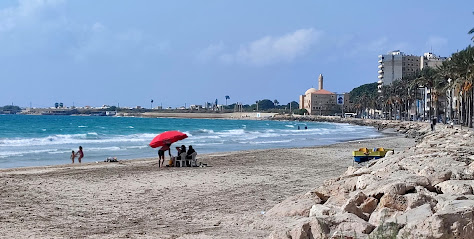
Sour
Explore the ancient city of Sour, where rich Phoenician history meets stunning Mediterranean coastlines, perfect for culture and beach lovers alike.
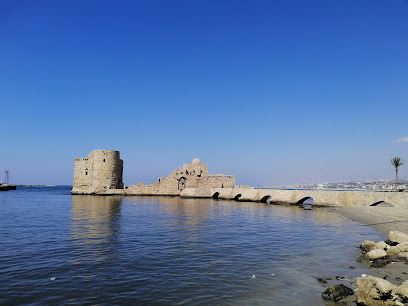
Entrance to the Tyre Al-Bass World Heritage Site
Explore the stunning Entrance to the Tyre Al-Bass World Heritage Site, a gateway to ancient Phoenician history and Mediterranean beauty.
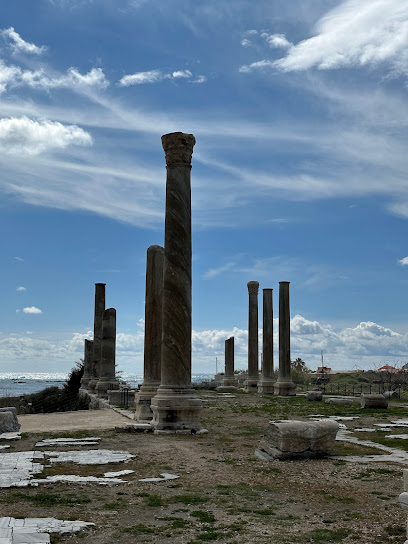
Tyre corniche
Experience the beauty of Tyre Corniche, a scenic promenade that offers stunning Mediterranean views, delicious local cuisine, and a vibrant atmosphere.
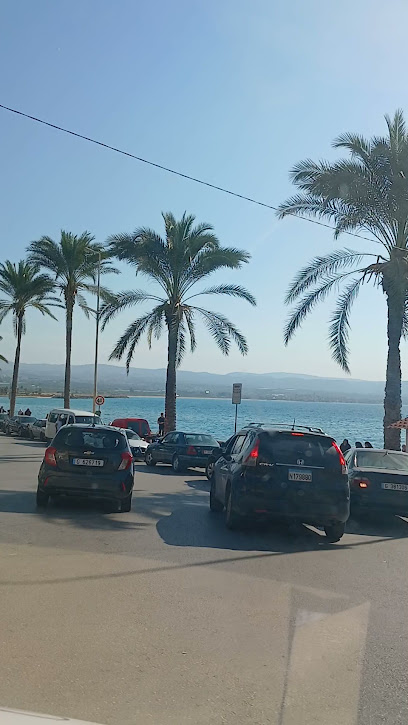
Tyre sea clock tower
Discover the beauty and history of Tyre at the iconic Sea Clock Tower, a symbol of the city’s rich heritage and stunning Mediterranean views.
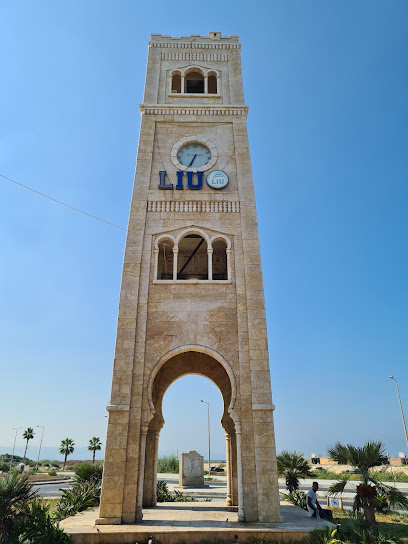
Unmissable attractions to see
Almona Gardens
Discover Almona Gardens in Julis: A serene oasis of natural beauty, perfect for relaxation, exploration, and connecting with nature's tranquility.
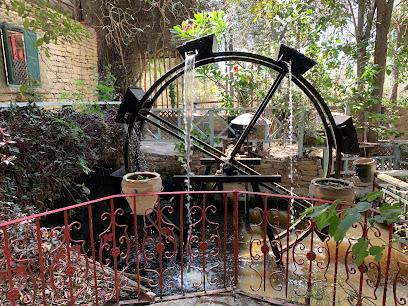
Splash Water Park
Experience a day of aquatic fun and relaxation at Splash Water Park in Damour, Lebanon. Perfect for families, events, and summer escapes.
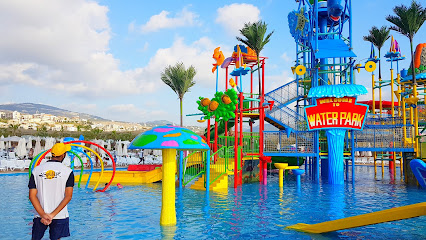
Aqua Park Lebanon
Experience thrilling water slides and relaxing pools at Aqua Park Lebanon, the ultimate summer getaway in Arab Salim.
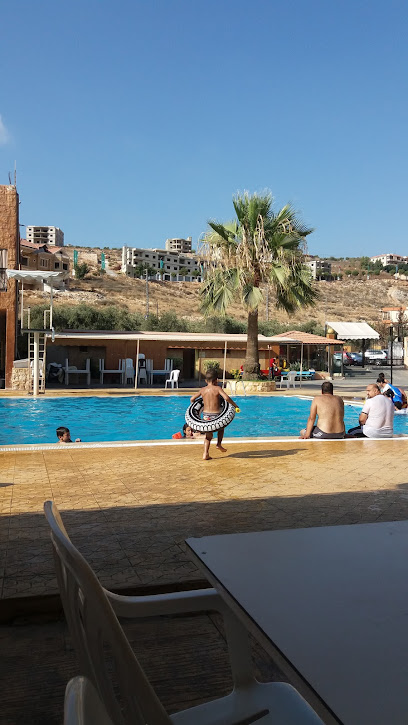
K-Bridge Water Park and Resort
Experience a fun-filled day at K-Bridge Water Park and Resort in Froun, Lebanon, with thrilling water slides, swimming pools, and more!
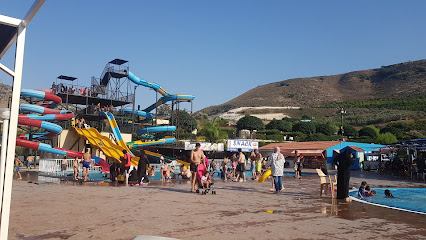
مرفأ صور
Explore the ancient gateway of Tyre, a historic port city with millennia of maritime heritage and stunning Mediterranean vistas.
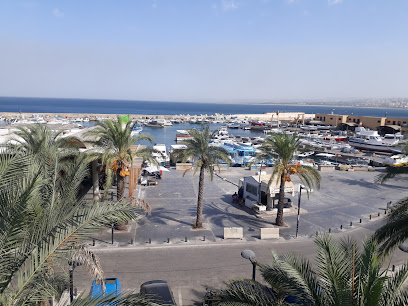
Al Khiyam Beach
Discover Tyre's vibrant Al Khiyam Beach: golden sands, clear waters, and Lebanese hospitality on the Mediterranean coast.
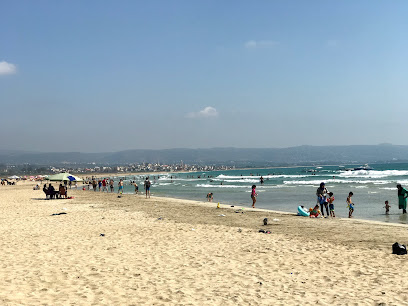
SOUR PARK / CITY PARK /FARAH SOUR/ water park / piscine
Experience a day of fun and excitement at SOUR Park, Aabbasiyyeh's premier amusement and water park for families and thrill-seekers!
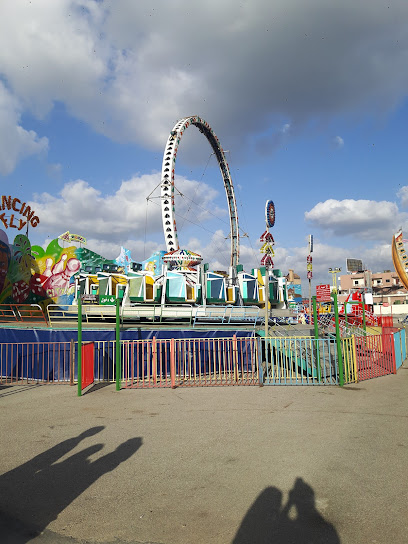
Rihan Grotto مغارة الريحان
Explore the natural beauty and geological wonders of Rihan Grotto, a historical landmark in southern Lebanon.
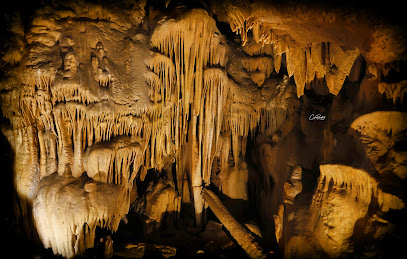
Aïshti Foundation
Explore contemporary art at the Aïshti Foundation in Beirut, a unique fusion of culture, architecture, and luxury shopping.
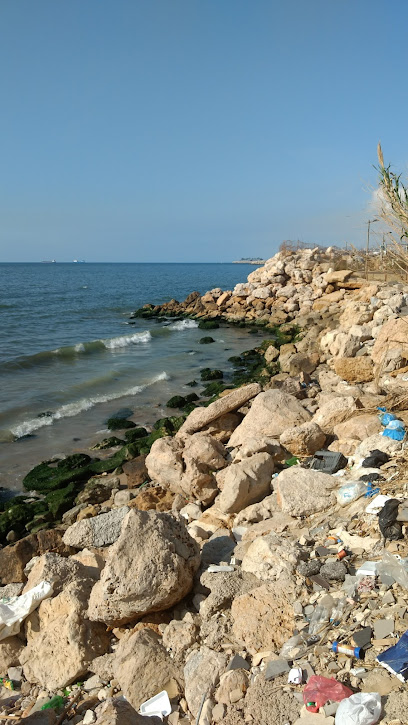
The old synagogue
Discover Peki'in's Old Synagogue: A testament to Jewish heritage in Galilee with ancient stones and rich history dating back over 2,000 years.
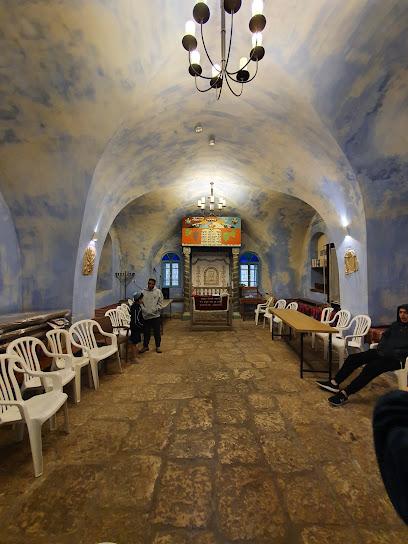
بحر صور
Discover Tyre Beach: a blend of golden sands, clear waters, and ancient history on Lebanon's captivating Mediterranean coast.
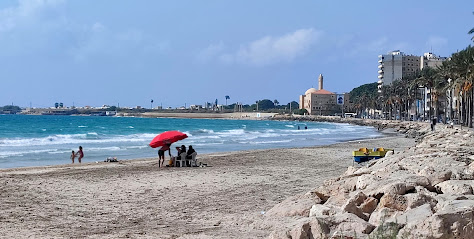
Old railroad track
Explore Naqoura's historic Old Railroad Track: A scenic coastal path where history and natural beauty intertwine.
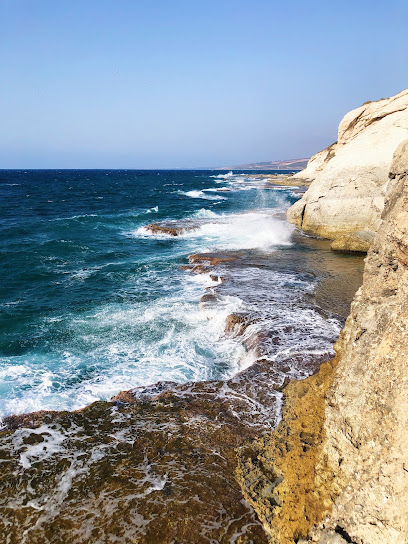
Lion king rock - Al Alams and friends
Discover Lion King Rock: A stunning Lebanese nature preserve with breathtaking coastal views and unique rock formations.
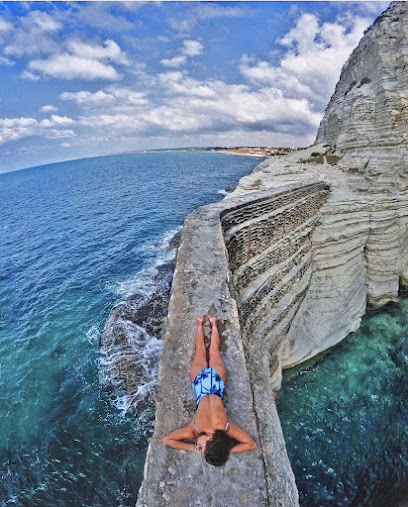
Paradise jbeil
Discover breathtaking views and serene landscapes at Paradise Jbeil in Qartaboun, Lebanon, a perfect blend of nature and culture.
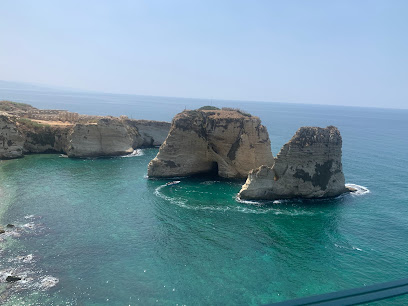
Sunset beach
Experience the beauty of Tyre's Sunset Beach: golden sands, turquoise waters, stunning sunsets, and a gateway to ancient history and Lebanese culture.
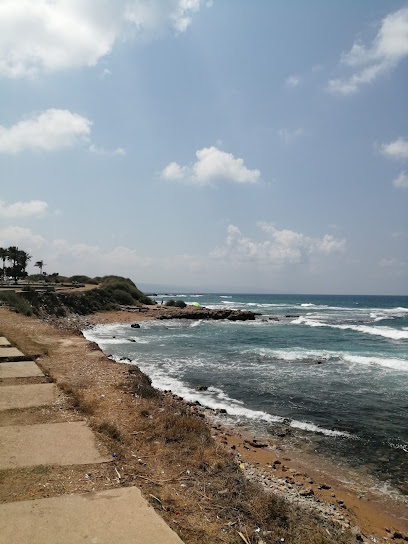
Essential places to dine
Amar Harissa - قمر
Experience authentic Lebanese cuisine with breathtaking views at Amar Harissa - قمر on Harissa Highway.
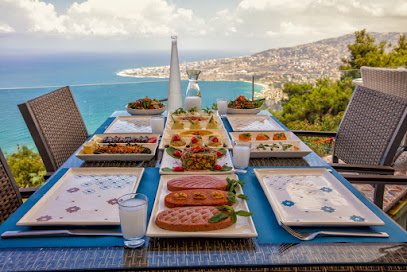
Cloud 59
Discover Cloud 59 in Tyre - where exquisite Lebanese cuisine meets stunning natural beauty for an unforgettable dining experience.
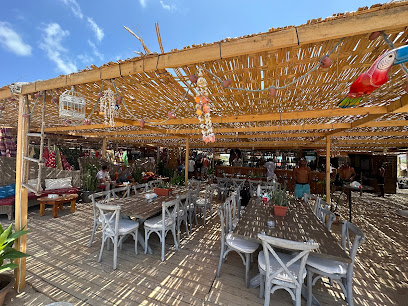
Le Phenicien Sea Food Restaurant
Experience exquisite seafood dining at Le Phenicien Seafood Restaurant in Tyre with stunning Mediterranean views and authentic flavors.
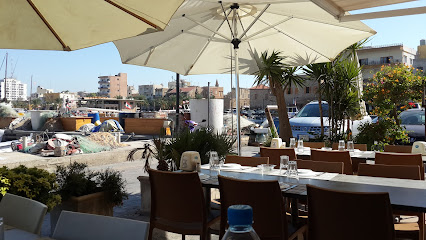
Al Fanar Restaurant & Auberge
Discover the flavors of Lebanon at Al Fanar Restaurant & Auberge in Tyre – where exquisite cuisine meets breathtaking seaside views.
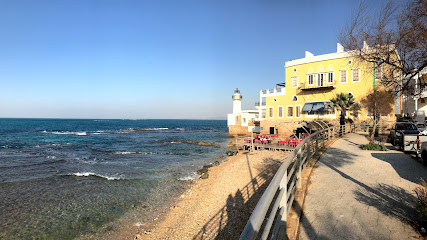
Mundo De La Playa
Savor authentic Lebanese cuisine at Mundo De La Playa in Tyre – where fresh flavors meet stunning Mediterranean views.
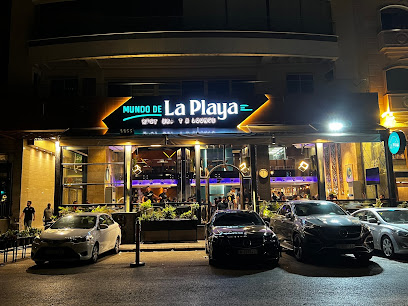
Rustica Cafe
Experience authentic Lebanese flavors at Rustica Cafe in Tyre – where tradition meets taste.
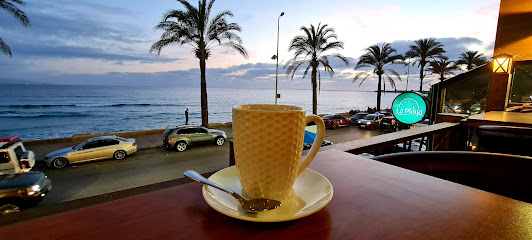
مرجوحة
Experience authentic Lebanese cuisine with stunning views at Marjouha Restaurant in Tyre.
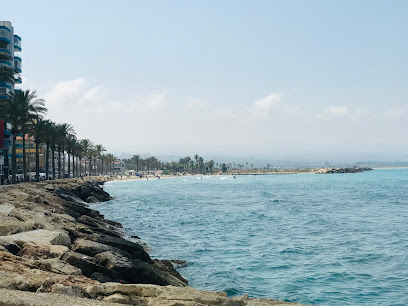
O Bois Restaurant
Experience authentic Lebanese flavors at O Bois Restaurant in Khenchara amidst stunning natural beauty.
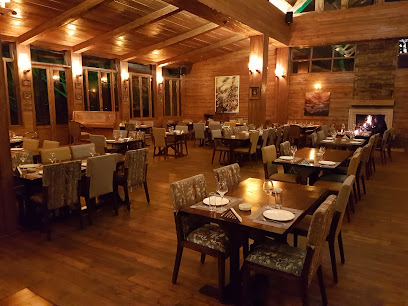
Port 79
Experience authentic Lebanese cuisine with stunning Mediterranean views at Port 79 in Tyre.
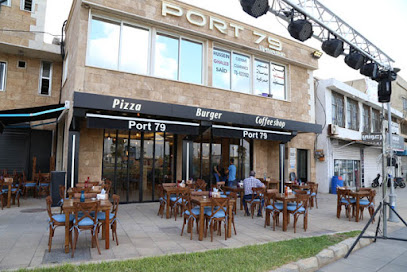
Fidar Beach House
Experience exquisite Lebanese cuisine at Fidar Beach House while enjoying breathtaking Mediterranean views.
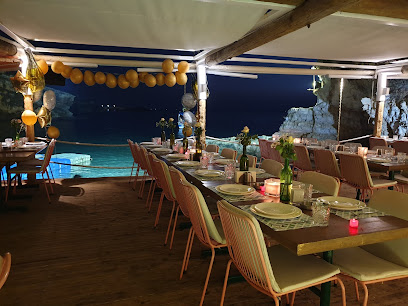
Safa Kassab
Experience authentic Lebanese cuisine at Safa Kassab in Tyre, where fresh seafood meets breathtaking Mediterranean views.
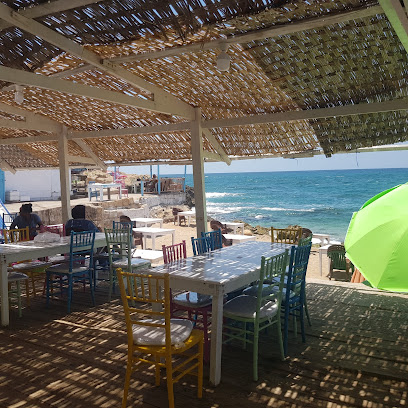
Al jamal
Experience authentic Lebanese cuisine at Al Jamal in Tyre – where tradition meets flavor in a picturesque setting.
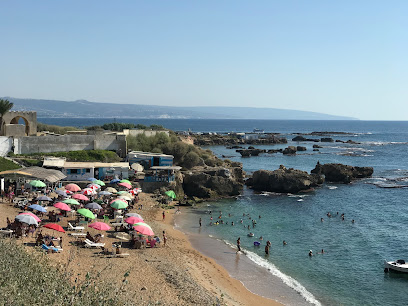
Kahloon RestoCafe
Experience authentic Lebanese cuisine at Kahloon RestoCafe—where every meal is a celebration of flavor and hospitality.
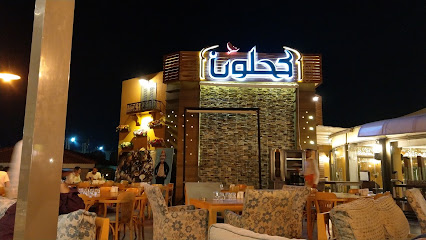
Al Marsah Tyre
Experience authentic Lebanese cuisine at Al Marsah Tyre – where tradition meets taste in every dish.
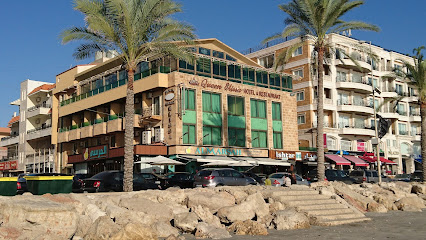
Al Marsah Naqura_(qlayleh Beach)
Discover delightful seafood dining at Al Marsah Naqura on Al Qlayleh Beach - where every meal is a coastal celebration.
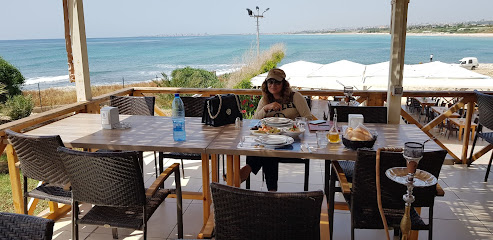
Markets, malls and hidden boutiques
Orient 499 Beirut
Explore Orient 499 Beirut for a unique blend of clothing and home goods, showcasing the essence of Lebanese craftsmanship and style.
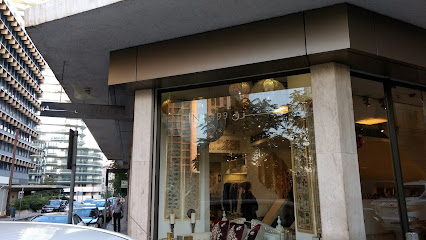
Wheelax
Discover Wheelax, the premier tire shop in Fanar, offering exceptional auto repair services and quality tires for all your travel needs in Lebanon.
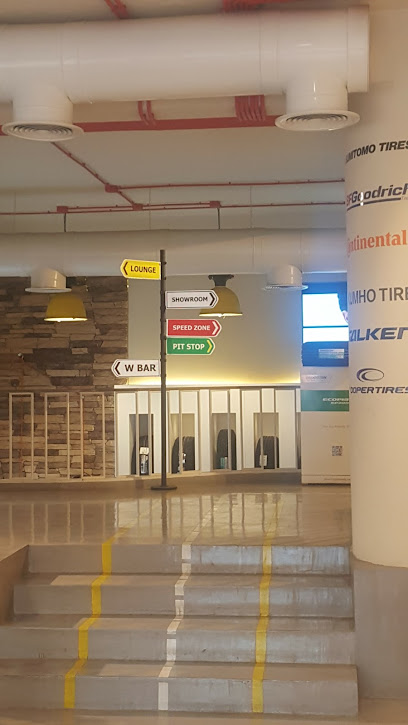
COCCINELLE
Discover exquisite furniture and decor at Coccinelle in Tyre, blending tradition and modern design for every home.
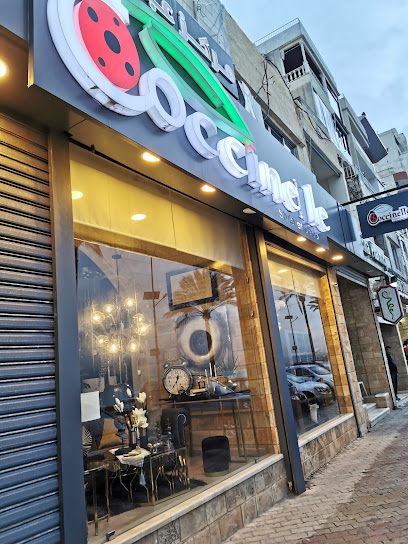
Ziadeh Group
Experience top-notch tire services at Ziadeh Group in Beirut, where quality products and customer satisfaction are our priority.
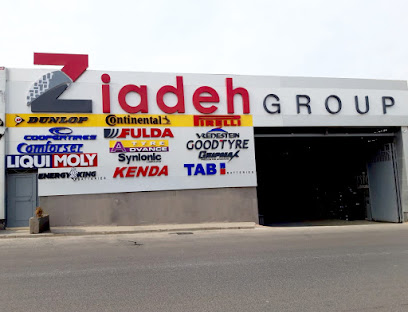
Global Tires Lebanon | BFGoodrich & Tigar tires exclusive importer and distributor
Explore Global Tires Lebanon for top-quality BFGoodrich & Tigar tires, expert installation, and exceptional service for a safer driving experience.
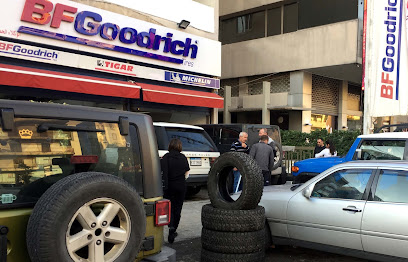
Matar Shopping Stores - Tyre
Discover the vibrant Matar Shopping Stores in Tyre, where shopping meets culture and culinary delights in a lively coastal setting.

Luanatic
Discover unique gifts and stylish accessories at Luanatic, a charming boutique in the heart of Beirut, perfect for tourists and locals alike.
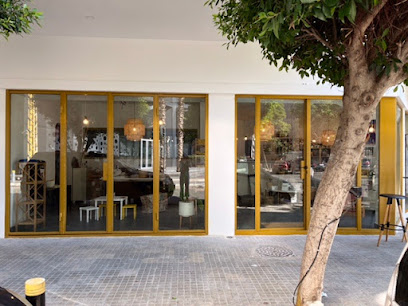
Moustache Tyre
Explore Moustache Tyre for the latest in fashion, offering stylish clothing for men, women, and children in the historic city of Tyre.

oddfish concept store
Explore Oddfish Concept Store in Beirut for unique fashion, art, and gifts that embody the city's creative spirit and charm.
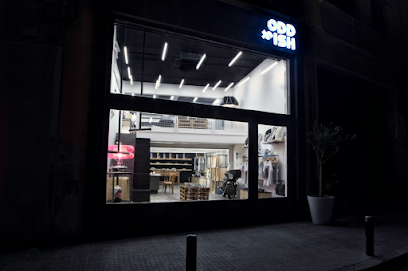
Brandet Premium Stores
Discover the latest trends and styles at Brandet Premium Stores in Tyre, Lebanon's premier clothing destination for fashion enthusiasts.
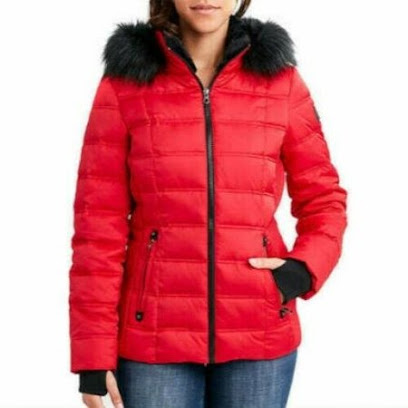
The Tire Shop
Experience reliable tire services at The Tire Shop in Lebanon, ensuring your travels are safe and uninterrupted with expert care.
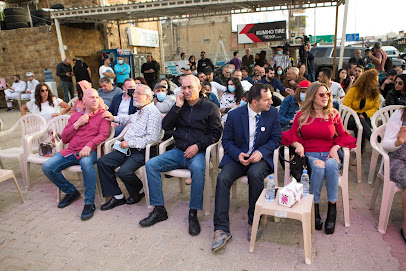
Turkish World
Discover unique fashion and cultural treasures at Turkish World in Tyre, where traditional meets contemporary in clothing.

Vintage 68
Explore Vintage 68 in Rabieh, a treasure trove of antiques offering unique finds and captivating stories that celebrate history.
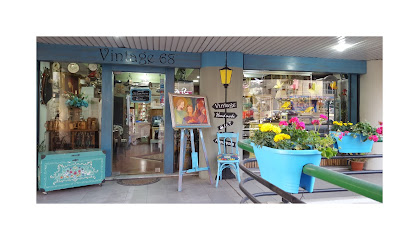
One More Thing - Concept Store
Explore One More Thing - Concept Store, Lebanon's ultimate shopping destination for unique finds and local artisan treasures.
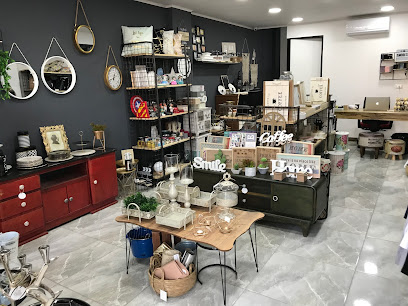
American Store
Explore the American Store in Tyre: a unique shopping experience blending American culture with local craftsmanship, perfect for souvenirs and local delicacies.
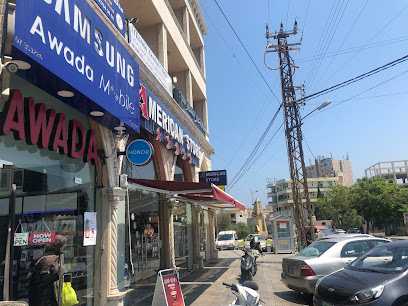
Essential bars & hidden hideouts
Cloud 59
Experience the perfect blend of nature and flavor at Cloud 59 in Tyre, a serene restaurant within a beautiful natural reserve.
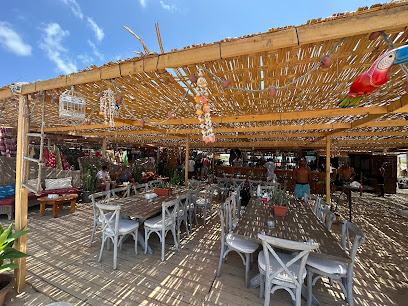
Coop d'état rooftop
Coop d'état rooftop in Beirut: Where stunning views meet an unforgettable nightlife experience, perfect for tourists and locals alike.
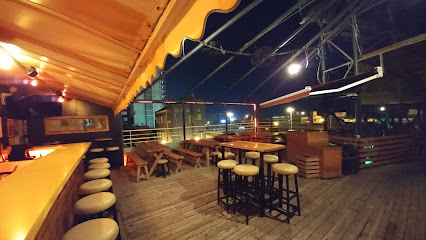
Bar Du Port
Discover the elegance of Bar Du Port, a premier lounge in Antelias offering stunning sea views, exquisite drinks, and a vibrant atmosphere.
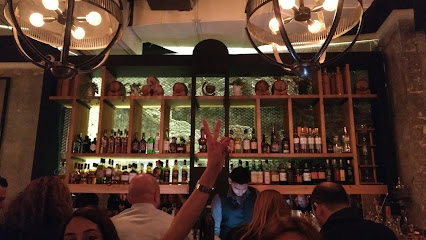
The Bohemian Bar
Discover Beirut's nightlife at The Bohemian Bar, where eclectic drinks and vibrant atmosphere come together in a unique experience.
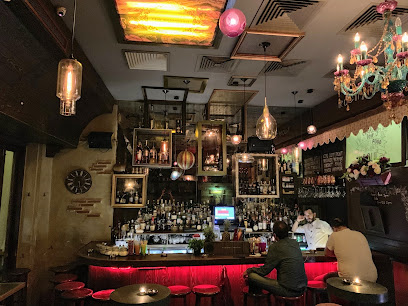
June Beach Resort
Experience the vibrant nightlife and exquisite cocktails at June Beach Resort, the ultimate cocktail bar in Aamchit, Lebanon.
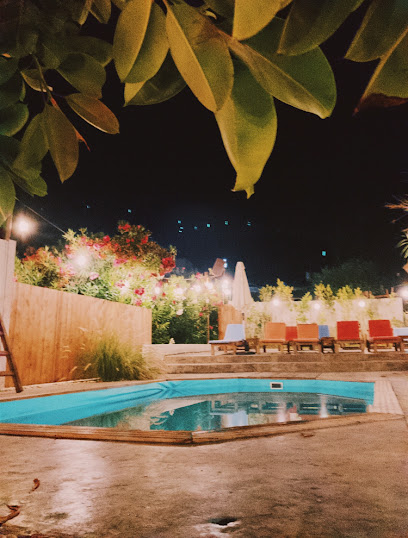
Starbucks
Experience the perfect blend of flavor and relaxation at Starbucks, located on the stunning coast of Tyre, Lebanon.
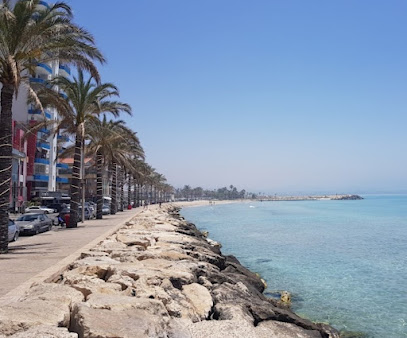
L'Osteria Beirut
Experience the charm of Italian cuisine at L'Osteria Beirut, a cozy bar offering authentic flavors in a vibrant atmosphere.
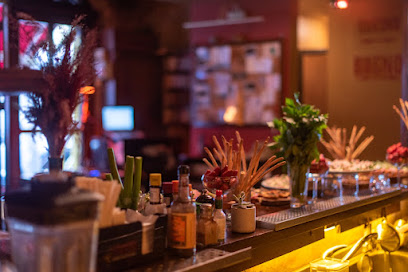
Al jamal
Discover the flavors of Lebanon at Al Jamal, a top restaurant in Tyre offering authentic Mediterranean cuisine in a warm, inviting atmosphere.
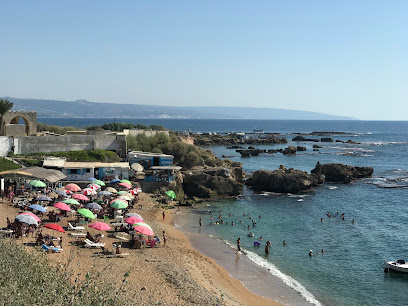
Tavolino Pub
Experience the vibrant nightlife at Tavolino Pub in Fanar, where great drinks and a lively atmosphere await every visitor.
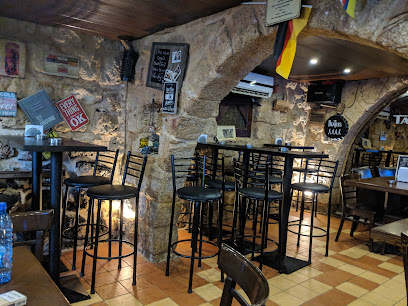
Salinas
Experience the best of Lebanese and seafood cuisine at Salinas in Tyre, where every meal comes with breathtaking Mediterranean views.
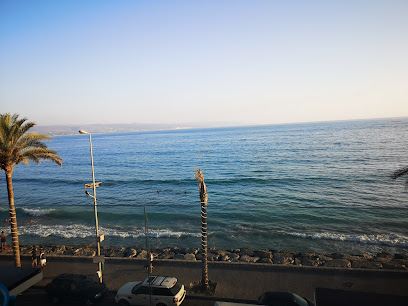
Twenty Two Beirut
Discover the vibrant nightlife of Beirut at Twenty Two Beirut, where local culture meets a lively pub atmosphere for an unforgettable experience.
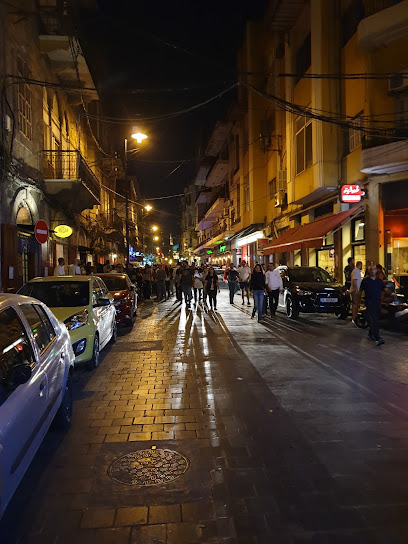
Bar National
Experience the vibrant atmosphere of Bar National, a coastal bar offering refreshing drinks and stunning views along Sea Side Rd in Lebanon.
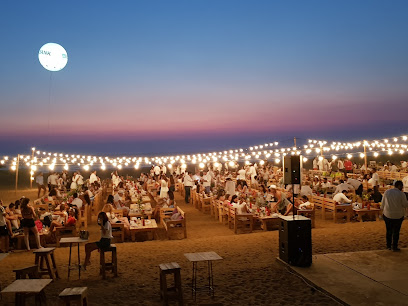
iLä Resto/Bar/Pub
Discover the vibrant nightlife of Tyre at iLä Resto/Bar/Pub, where delicious food and refreshing drinks meet a lively atmosphere.
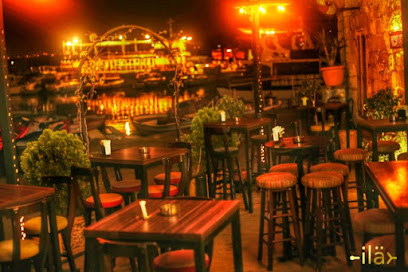
Solea Beach Rooftop
Discover Solea Beach Rooftop in Khalde, a vibrant bar offering stunning sea views, delicious cocktails, and an unforgettable nightlife experience.
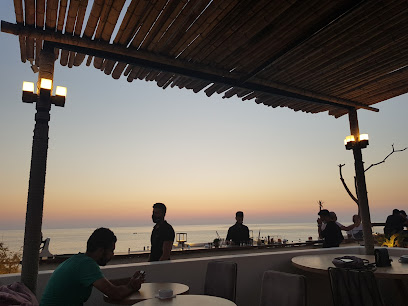
Local Phrases about Tyre Coast
-
- Helloمرحبا
[marhaba] - Goodbyeوداعا
[wada'an] - Yesنعم
[naam] - Noلا
[la] - Please/You're welcomeمن فضلك / على الرحب والسعة
[min fadlik / ala alrahb wasa'ah] - Thank youشكرا
[shukran] - Excuse me/Sorryعذرا
[aadhran] - How are you?كيف حالك؟
[kayf halak?] - Fine. And you?بخير. وأنت؟
[bikhayr. wa'ant?] - Do you speak English?هل تتحدث الإنجليزية؟
[hal tatahadath al'ingilizia?] - I don't understandأنا لا أفهم
[ana la afham]
- Helloمرحبا
-
- I'd like to see the menu, pleaseأريد أن أرى القائمة، من فضلك
[uridu an ara alqaimah, min fadlik] - I don't eat meatأنا لا آكل اللحم
[ana la aakul allahm] - Cheers!صحتين!
[sahhtayn] - I would like to pay, pleaseأود أن أدفع، من فضلك
[awadu an adfae, min fadlik]
- I'd like to see the menu, pleaseأريد أن أرى القائمة، من فضلك
-
- Help!النجدة!
[alnajdah!] - Go away!انصرف!
[ansarf!] - Call the Police!اتصل بالشرطة!
[atasil bialshurta!] - Call a doctor!اتصل بالطبيب!
[atasil baltabib!] - I'm lostلقد ضللت
[laqad dalalt] - I'm illأنا مريض
[ana mareed]
- Help!النجدة!
-
- I'd like to buy...أريد أن أشتري...
[uridu an ashtari...] - I'm just lookingأنا فقط أتفرج
[ana faqat atafarraj] - How much is it?كم سعره؟
[kam saeruh?] - That's too expensiveهذا غالي جدا
[hatha ghaali jiddan] - Can you lower the price?هل يمكنك خفض السعر؟
[hal yumkinuk khafd alsaer?]
- I'd like to buy...أريد أن أشتري...
-
- What time is it?كم الساعة؟
[kam alsaeah?] - It's one o'clockالواحدة
[alwahidah] - Half past (10)العاشرة والنصف
[alashirah walnasf] - Morningصباح
[sabah] - Afternoonبعد الظهر
[baed aldhohr] - Eveningمساء
[masa] - Yesterdayأمس
[ams] - Todayاليوم
[alyaum] - Tomorrowغدا
[ghadan] - 1واحد
[wahid] - 2اثنان
[ithnan] - 3ثلاثة
[thalathah] - 4أربعة
[arbahah] - 5خمسة
[khamsah] - 6ستة
[sitah] - 7سبعة
[sabahah] - 8ثمانية
[thamaniah] - 9تسعة
[tisah] - 10عشرة
[asharah]
- What time is it?كم الساعة؟
-
- Where's a/the...?أين...
[ayna...] - What's the address?ما هو العنوان؟
[ma huwa al'unnwan?] - Can you show me (on the map)?هل يمكنك أن تريني (على الخريطة)؟
[hal yumkinuk an tureeni (ala alkharitah)?] - When's the next (bus)?متى يأتي الحافلة التالية؟
[mata yati alhafilah altaliyah?] - A ticket (to ....)تذكرة (إلى ...)
[tazkirah (ila ...)]
- Where's a/the...?أين...
History of Tyre Coast
-
Tyre, originally known as 'Sour,' was one of the most important cities of the ancient Phoenician civilization. Founded around 2750 BCE, it became a major maritime and trade center. The Phoenicians were known for their seafaring skills and established trade routes across the Mediterranean, trading goods such as purple dye, glass, and timber.
-
In 332 BCE, Tyre faced one of the most famous sieges in history by Alexander the Great. The city, originally an island fortress, withstood a seven-month siege. Alexander's forces built a causeway to reach the island, ultimately breaching its defenses and capturing the city. The siege marked a significant moment in Alexander's campaign to conquer the Persian Empire.
-
Under Roman rule, Tyre flourished as a significant urban center. The Romans constructed many impressive structures, including the Roman Hippodrome, which could accommodate up to 20,000 spectators, and the Al-Bass Tyre Necropolis. These architectural marvels are a testament to the city's historical importance and engineering prowess during the Roman period.
-
Following the decline of the Roman Empire, Tyre became part of the Byzantine Empire. The city continued to thrive during the Byzantine period, but eventually fell to Arab Muslim forces in 635 CE. Under Islamic rule, Tyre remained an important port and commercial hub, contributing to the cultural and economic exchanges in the region.
-
In the 12th century, Tyre was captured by the Crusaders and became part of the Kingdom of Jerusalem. The city was fortified with massive walls and became a key stronghold in the Crusader states. Tyre played a significant role in the Crusader economy due to its strategic location and prosperous trade.
-
In 1516, Tyre came under Ottoman rule, which lasted until the end of World War I. During the Ottoman period, the city experienced periods of decline and revival. In the 20th century, Tyre began to modernize, and archaeological excavations uncovered many of its ancient treasures. Today, Tyre is a UNESCO World Heritage site, drawing visitors from around the world to explore its rich history and vibrant culture.
Tyre Coast Essentials
-
Tyre Coast is located in southern Lebanon along the Mediterranean Sea. The nearest major airport is Beirut-Rafic Hariri International Airport, approximately 80 kilometers to the north. From Beirut, you can take a taxi or a bus to Tyre. The journey by road typically takes around 1.5 to 2 hours. There are also private car services available for a more comfortable trip.
-
Within Tyre, you can get around using taxis, which are readily available and relatively inexpensive. Public buses also operate in the area, connecting different parts of the city. For a more immersive experience, consider renting a bicycle to explore the coast and its attractions at your own pace. Car rentals are available for those who prefer to travel further afield or explore the surrounding regions.
-
The official currency in Lebanon is the Lebanese Pound (LBP), although US Dollars are widely accepted. Credit cards are accepted in most hotels, restaurants, and shops in Tyre, but it is advisable to carry some cash for smaller establishments and local markets. ATMs are available throughout the city, but it's a good idea to have enough cash on hand, especially if you plan to visit remote areas.
-
Tyre is generally considered safe for tourists, but it is always important to take standard precautions. Avoid walking alone at night in unfamiliar areas and keep an eye on your belongings in crowded places. While Tyre does not have specific high-crime areas targeting tourists, it is best to stay vigilant and aware of your surroundings.
-
In case of emergency, dial 112 for immediate assistance. Tyre has local police stations and medical facilities available to assist tourists. It is recommended to have travel insurance that covers medical emergencies. Pharmacies are available in the city where you can purchase over-the-counter medications for minor health issues.
-
Fashion: Do dress modestly, especially when visiting religious sites. Avoid wearing revealing clothing. Religion: Do respect local customs and traditions. Always cover your head when entering mosques and other religious sites. Public Transport: Do be respectful and give up your seat to elderly passengers. Don't eat or drink on public transport. Greetings: Do greet people with a handshake; a slight bow of the head is also a sign of respect. Eating & Drinking: Do try local delicacies and accept food offerings graciously. Don't refuse hospitality, as it is considered impolite.
-
To experience Tyre Coast like a local, visit the local markets where you can buy fresh seafood and traditional Lebanese goods. Engage with locals, as they are often friendly and willing to share stories about the history and culture of Tyre. Don't miss visiting the ancient ruins of Al-Bass and the Roman Hippodrome, which are UNESCO World Heritage Sites. For a unique experience, take a boat trip to explore the coastline and its hidden gems.
Nearby Cities to Tyre Coast
-
Things To Do in Rosh HaNikra
-
Things To Do in Nahariya
-
Things To Do in Sidon
-
Things To Do in Marjayoun
-
Things To Do in Akko
-
Things To Do in Acre
-
Things To Do in Safed
-
Things To Do in Haifa
-
Things To Do in Deir el Qamar
-
Things To Do in Tiberias
-
Things To Do in Nazareth
-
Things To Do in Rashaya
-
Things To Do in Aley
-
Things To Do in Beirut
-
Things To Do in Broummana










